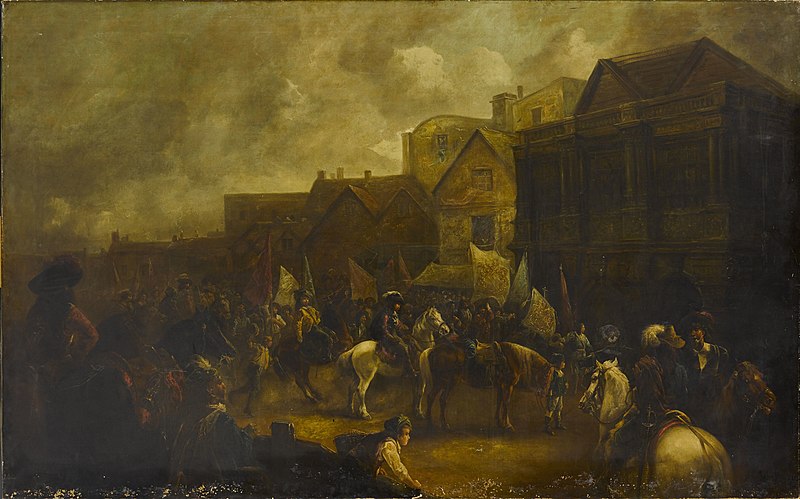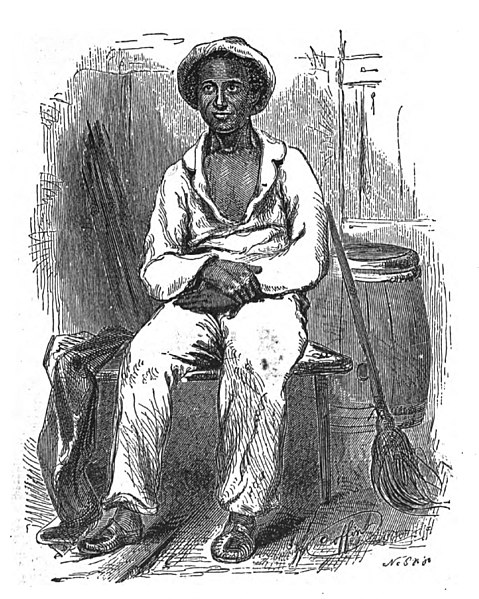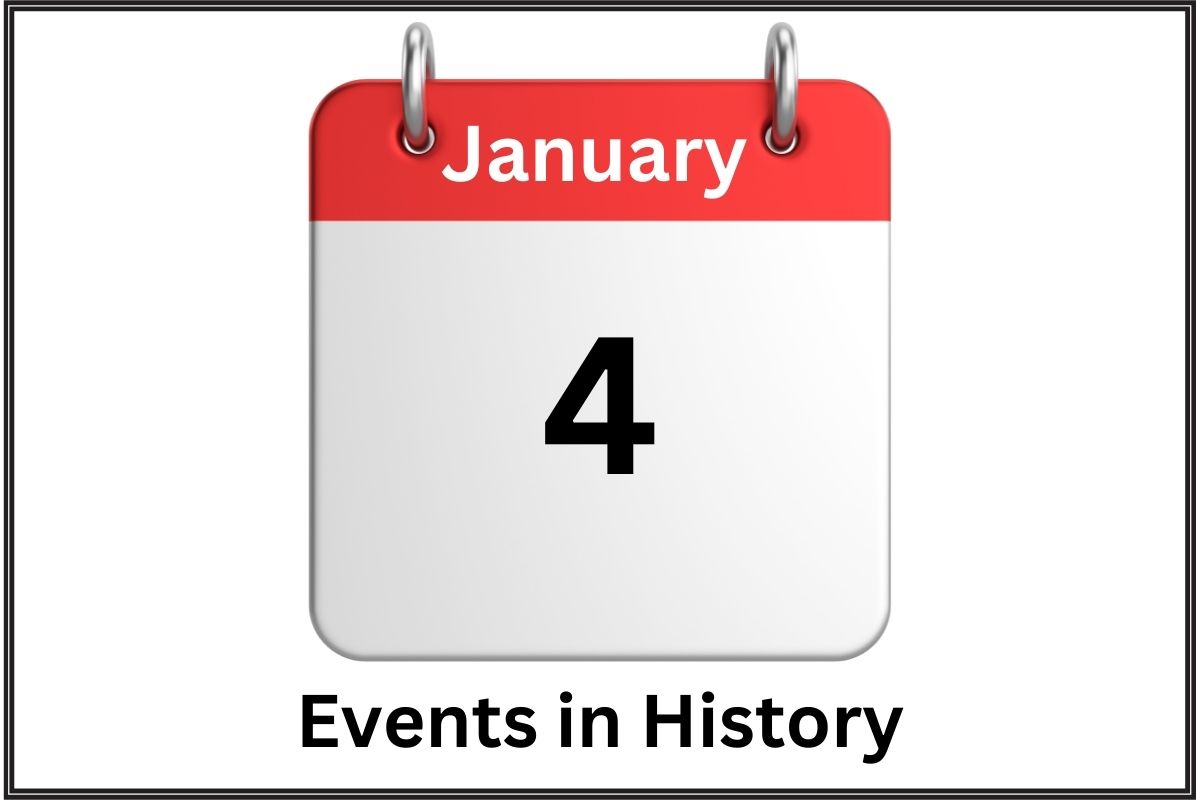This article delves into a series of significant historical events that occurred on January 4th, spanning various eras and touching on a diverse range of subjects.
From political milestones and groundbreaking legislative accomplishments to tragic incidents and cultural shifts, the events on this date reflect the multifaceted nature of history.
We explore the narratives of political figures like Patsy T. Mink and Nancy Pelosi, who broke barriers in the U.S. Congress, and the tragedy of the 1990 train collision in Pakistan.
Each event provides a window into the complex tapestry of our shared past, offering insights into the moments that have shaped the world we live in today.
January 4th Events in History
46 BC – Julius Caesar fights in the Battle of Ruspina
This was a military engagement in the African campaign of the Roman civil war. Julius Caesar faced a much larger force led by Titus Labienus, one of his former lieutenants.
Also Read: January 3 – On this Day in History
The battle was part of Caesar’s campaign against the senatorial forces, who had allied with Pompey’s sons. Despite being outnumbered, Caesar managed to retreat in good order.
871 – The Battle of Reading occurs during the Viking invasions of England
This battle was part of the Viking invasions of England. The Vikings, having established a fortified camp at Reading, were attacked by an Anglo-Saxon army led by Æthelred of Wessex and his brother Alfred (the future Alfred the Great). The Vikings emerged victorious, further consolidating their position in England.

1642 – English Civil War: King Charles I attempts to arrest members of Parliament
During the English Civil War, King Charles I, accompanied by soldiers, attempted to arrest five members of Parliament for treason. This event escalated tensions between the monarchy and Parliament, contributing significantly to the outbreak of the civil war.
1649 – English Civil War: The Rump Parliament votes to put Charles I on trial
In a remarkable historical turn, the Rump Parliament, which was essentially the remnants of the Long Parliament after purges by the army, voted to put King Charles I on trial.
Also Read: January 5th Events in History
This led to his eventual execution and the temporary establishment of a republican form of government in England.
1717 – The Netherlands, Great Britain, and France sign the Triple Alliance
This was a treaty between the Netherlands, Great Britain, and France. It was primarily aimed at maintaining the balance of power in Europe and preventing the expansion of the Spanish Habsburgs.
The alliance is notable for its role in the diplomatic and military landscape of early 18th-century Europe.
1762 – Great Britain declares war on Spain, entering the Seven Years’ War
This declaration brought Spain into the Seven Years’ War, a global conflict that involved most of the great powers of the time. The war is often seen as the first “world war” due to its scale and the global nature of its theatres.
1798 – Constantine Hangerli arrives in Bucharest as the new Prince, invested by the Ottoman Empire
Hangerli’s arrival in Bucharest as the new Prince of Wallachia marked a significant moment in the region’s history. His rule was characterized by reforms, but also by a close relationship with the Ottoman Empire, which had significant influence in Wallachia at the time.
1847 – Samuel Colt sells his first revolvers to the U.S. government
Colt’s sale of his revolvers to the U.S. government marked the beginning of a new era in firearms and military technology.
His revolvers were innovative due to their ability to fire multiple rounds before needing to be reloaded, a significant advantage over single-shot firearms.
1853 – Solomon Northup, author of “Twelve Years a Slave,” regains his freedom after being kidnapped and sold into slavery
Solomon Northup was a free Black man from New York who was kidnapped and sold into slavery in the American South.
His eventual freedom and the publication of his memoir, “Twelve Years a Slave,” provided an important firsthand account of the experiences of enslaved people in America.

1896 – Utah is admitted as a state in the United States
Utah was admitted to the United States as the 45th state. Its path to statehood was complex, largely due to issues surrounding the Mormon practice of polygamy, which was prevalent among early settlers of the territory.
The federal government demanded the abolition of polygamy as a condition for statehood, which the Mormon church eventually complied with.
1913 – German military strategist Alfred von Schlieffen dies
Alfred von Schlieffen, a German field marshal, known for the Schlieffen Plan, a strategy for attacking France quickly, then pivoting to the Eastern Front against Russia in World War I, died on this date. Although the plan was modified and ultimately failed, it was a significant part of military history.
1948 – Burma (Myanmar) is granted independence from British rule
Burma, now Myanmar, gained its independence from British colonial rule. This was a major event in the decolonization of Asia post-World War II.
Aung San, a pivotal figure in the independence movement, was instrumental in these negotiations.
1960 – French novelist and playwright Albert Camus dies in an automobile accident
Albert Camus, a French philosopher and writer known for his contributions to existentialism and absurdism, died in a car accident. He won the Nobel Prize in Literature in 1957 and is famous for works such as “The Stranger” and “The Myth of Sisyphus.”

1964 – Patsy T. Mink is sworn in as the first Asian American woman and woman of color in the U.S. Congress
Patsy Takemoto Mink, representing Hawaii, was the first Asian American woman and woman of color to serve in the U.S. Congress. Her tenure was notable for her advocacy in education, women’s rights, and civil liberties.
1965 – U.S. President Lyndon B. Johnson delivers his “Great Society” State of the Union address
President Lyndon B. Johnson outlined his vision for a “Great Society” during his State of the Union address. This agenda led to significant legislation in health, education, urban renewal, and civil rights.
1990 – A tragic train collision occurs in Pakistan
A devastating train collision occurred in Pakistan, resulting in a high number of casualties. This incident is one of the worst train accidents in history, highlighting issues in railway safety and management.
1995 – The Republican Party takes control of the U.S. Congress for the first time in 40 years
For the first time in 40 years, the Republican Party took control of both the House of Representatives and the Senate following the 1994 midterm elections, often referred to as the “Republican Revolution.”
1996 – General Motors announces its electric car
General Motors unveiled the EV1, marking a significant development in the history of electric vehicles. Although the EV1 was later discontinued, it represented an early effort to bring electric cars to the mainstream market.
2007 – Nancy Pelosi becomes the first female Speaker of the House in the U.S
Nancy Pelosi made history by becoming the first woman to serve as the Speaker of the United States House of Representatives. This was a landmark achievement in American politics regarding the representation of women in high political offices.
2010 – The Burj Khalifa in Dubai, the world’s tallest building, officially opens
The Burj Khalifa in Dubai, the tallest building in the world, officially opened. This architectural marvel stands at over 828 meters and is a symbol of Dubai’s rapid development and ambition in the 21st century.
